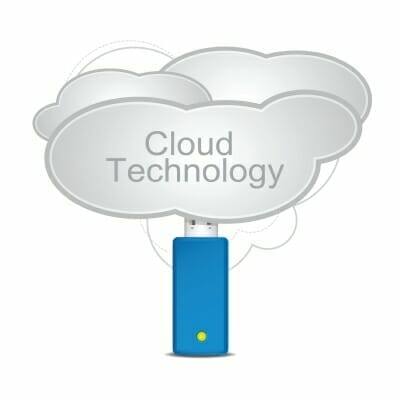 Current research tells us that in 2010 not even 3% of businesses were utilizing cloud services. Now a mere 3 years later that number has increased to about 21%. Impressive, right? And now predictions are telling us that the next 4 years will continue to see an increase when it comes to businesses signing up to receive cloud services, which is easy to believe by looking at these numbers. It’s easy to see that at this rate the high majority of businesses will be signing up for and utilizing cloud services by the year 2020. Because it’s predicted that so many businesses will be utilizing cloud services in the near future, it’s a good idea for every business learn everything they can about the cloud now.
Current research tells us that in 2010 not even 3% of businesses were utilizing cloud services. Now a mere 3 years later that number has increased to about 21%. Impressive, right? And now predictions are telling us that the next 4 years will continue to see an increase when it comes to businesses signing up to receive cloud services, which is easy to believe by looking at these numbers. It’s easy to see that at this rate the high majority of businesses will be signing up for and utilizing cloud services by the year 2020. Because it’s predicted that so many businesses will be utilizing cloud services in the near future, it’s a good idea for every business learn everything they can about the cloud now.
Top Terms
The fact that cloud computing can get rather technical means that there’s a particular set of vocabulary that goes along with it. Although some of the terms and/or acronyms may seem a little intimidating at first, it’s a really good idea to at least get a basic grasp of their meanings, which is only going to help a company understand what exactly cloud computing can do for them.
SaaS, BDaaS, IaaS: These 3 acronyms stand for Software-as-a-Service, Big-Data-as-a-Service and Infrastructure-as-a-Service. These 3 technical terms refer to services that provide the support necessary for cloud computing to take place.
XaaS: Here, the x can stand for anything.
Private Cloud: A private cloud refers to a cloud that’s created to only exist within the company’s phone system. This means that the data held inside the cloud can only be accessed by said company.
Public Cloud: A public cloud refers to a cloud that is shared among many different companies. Although not as secure as a private cloud, the majority of businesses are finding that a public cloud is effectively meeting their needs.
Hybrid Cloud: A hybrid cloud is the perfect solution for a company that wants to have some security measures in place, yet want the information stored in a call to the easily accessed by employees and/or stay.
Cloud Bursting: Cloud bursting is fairly new and is similar to a hybrid cloud as it combines the best features of a private and public cloud. When an application is initiated, it’ll first run in a private cloud. If the server is too busy, the application will switch over so it can open in a public cloud.
Elastic Computing: Elastic computing refers to a company’s capacity to add to or reduce a variety of computing resources, including things like storage space and memory.
Middleware: This software acts as a mediator between applications and a company’s OS, exchanging data between the two so that the applications are able to properly unite.
Vendor Lock-In: The term vendor lock-in refers to the situation in which a vendor isn’t able to change their providers, which can be due to a number of reasons.
Consumption-Based Pricing Model: This term refers to what a consumption-based pricing model might be, which is obtained from observing the types of cloud services that customers are signing up for.
Cloud VoIP Reseller Partners
When resellers are first starting out in the reselling business, one of the most important things they can do is find the right reselling partner. Finding the right reselling partner means finding someone who’s able to completely understand the needs of a business and can accordingly provide everything necessary for their success. When a company first begins looking into what they need to do in order to sign up to receive cloud services, they’re going to want to give their business to someone who is an authority in this highly specialized niche. In order for a reseller to be able to provide the absolute best phone services to their customers, it’s essential that they find the right cloud VoIP reseller partners.
Image courtesy of fotographic1980/FreeDigitalPhotos.net
